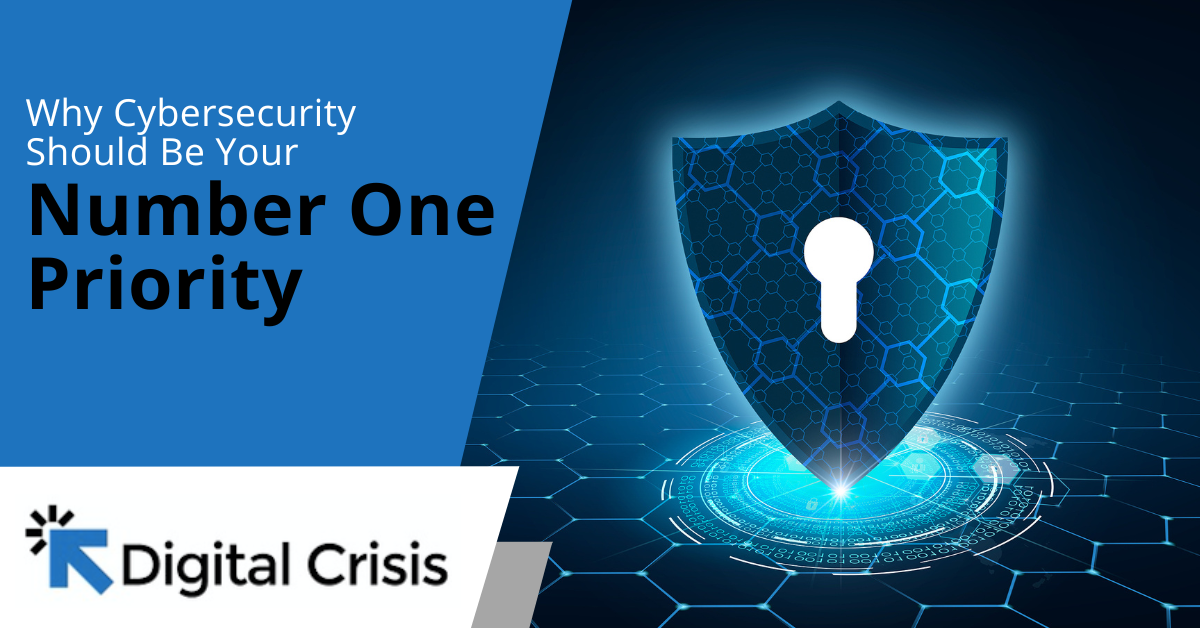
Of all the priorities a business has, technology is just one of many. Usually, revenue is number one, followed by things like employee productivity, good customer service, and other bottom-line factors.
But one thing that can impact a bottom line as much or more than anything else is a cyberattack. Many small and mid-sized companies aren’t well prepared. And even larger companies lose millions of dollars when hit with a data breach or ransomware infection. We have a few recommendations for cybersecurity protocols your business should implement today!
According to CrowdStrike, the average ransomware ransom payment increased by 63% in 2021, to $1.79 million. But beyond the payment, there is also downtime, which is often more expensive for a company.
If cybersecurity isn’t at the top of your business priority list, it should be. The cost of an attack is just one of the many reasons. Some businesses tend to take a “fix it when it breaks” attitude towards their technology infrastructure. But if you do this for your IT security, you can end up not being around long enough to fix things.
Being proactive is the safest approach and one that will feed into all the other areas of your operations. This includes your all-important bottom line.
Here are several reasons why you should move cybersecurity to the top of your list of business priorities.
Attacks are going up every year. This means while you may have been safe in the past, the odds are getting worse. With more attacks, your risk of getting hit goes up.
In 2021, organizations suffered 50% more cyberattack attempts per week than in the previous year. These attacks are also becoming more sophisticated and often employ the use of AI and machine learning, which improves response rates. Great for hackers, not great for employees that get fooled by clever phishing messages.
Another factor that has led to a rise in overall cyber security failure is Ransomware as a Service (RaaS). This is similar to the cloud software you sign up for online, but this is for hackers only. It packages ransomware attacks in a service so even novices can launch them to try to make a quick buck.
Most companies need to comply with one or more data privacy regulations. Industries such as healthcare, law, accounting, and finances have quite a few of these to worry about. In addition to national regulations, such as HIPAA (Health Insurance Portability and Accountability Act), there are local, state, and industry regulations.
Most of these regulations will have stiff fines for non-compliance. These fines also get larger in many cases if it’s found your cybersecurity is lax. Not following best practices puts you into a higher penalty tier.
HIPAA violations can cost between $100 to $50,000 per breached record.
Cybersecurity liability insurance has become a popular way for companies to protect themselves. But this is not a replacement for adopting good IT security best practices.
You may actually think you’re covered for something when you’re not due to changes happening in the industry. For example, Insurance carrier AXA recently decided to stop reimbursing companies for payments they pay to ransomware attackers.
Other carriers are dropping coverage for what they consider “nation-state” attacks, of which there are many. Rogue countries often have their own team of hackers that launch widespread attacks impacting businesses around the world.
So, it’s important you prioritize cybersecurity because you can’t always expect your coverage to take care of the cost in full. Plus, you may not even qualify for a policy if you have poor IT security practices.
You can be breached through a relationship with another company. And alternately, if you provide any digital services or connect digitally with clients (such as an accounting firm), you could be the cause of a breach of their systems.
These types of attacks are referred to as supply-chain attacks. It’s when a hacker targets a company that supplies something to many other companies. It could be products (like food or oil), or it could be software and digital services.
Approximately 97% of companies have been impacted by a breach in their supply chain, and 93% have suffered a direct breach as a result of a supply chain security vulnerability.
One click on a phishing link that leads to a major data breach of client data or a ransomware infection can shut down your business. Not just for several days while you’re trying to get back online, but forever.
Sixty percent (60%) of small businesses end up going out of business within 6-months of being hacked. This emphasizes the fact that few things have as much impact on a company’s bottom line and well-being as does cybersecurity.
Digital Crisis can help your Houston area business with simple steps to get started fortifying your network against attacks.
Contact us today to schedule a consultation. Call 713-965-7200 or reach us online.